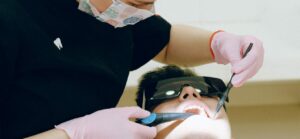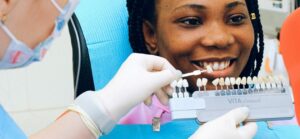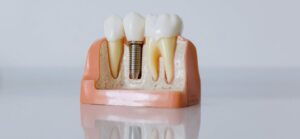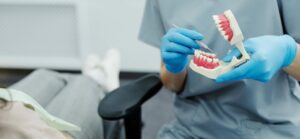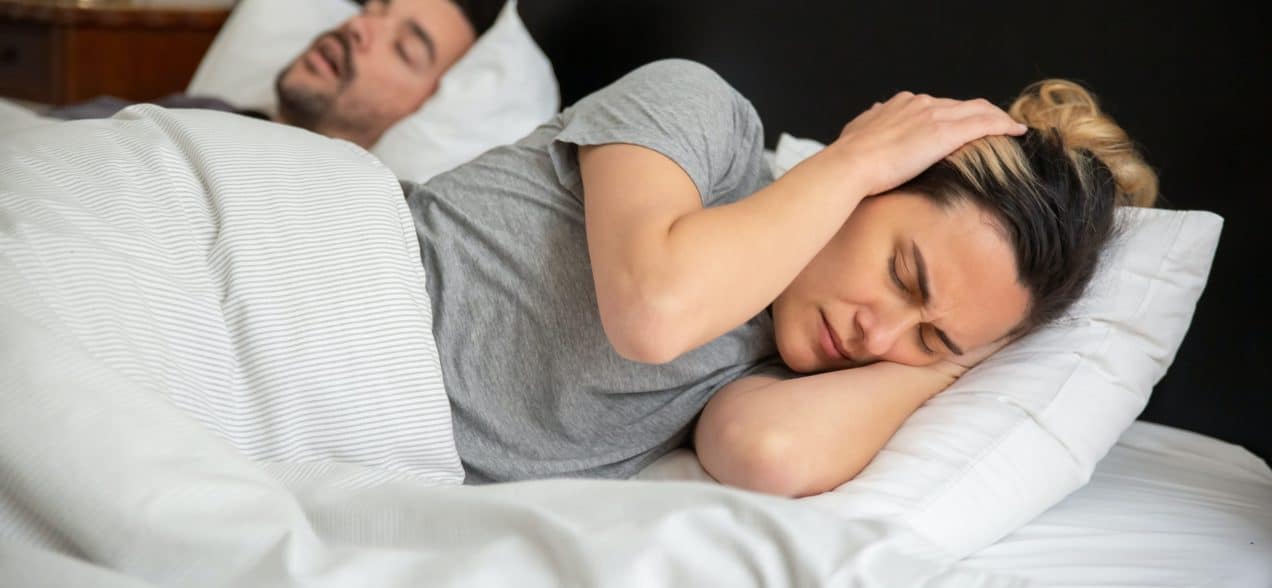
Actress Carrie Fisher’s untimely death in 2016 was attributed in part to sleep apnea. Since then, news outlets across the country, including the Chicago Sun Times and the Chicago Tribune, have been educating Americans about the disorder.
It’s been just within the last 20 years that the medical community has recognized the life-threatening dangers of sleep apnea; and as a recent article in the Sun stated, “a variety of new treatments are vying for a place in America’s bedrooms.”
Among those treatments are oral appliances available from dentists such as Dr. Theodore Siegel of Big Smile Dental in Chicago, who are specially trained in dental sleep medicine. Oral appliances resemble sports mouthguards but are custom-made to prevent the airway blockage that comes with sleep apnea. Recent research has documented how well these devices work, so much so that the American Academy of Sleep Medicine has endorsed oral appliances as an “effective first-line treatment” for sleep apnea.
Treating a ticking time bomb
Over 25 million Americans have been diagnosed with sleep apnea; millions more may not even realize they have it.
“Apnea” is a Greek word that means “want of breath.” If you have sleep apnea, you repeatedly stop breathing as you sleep, as many as 100 times a night for as long as a few seconds to more than a minute. When your brain realizes there’s no oxygen coming in, it sends you a jolt, so you’ll gasp for air. Then the cycle repeats.
What contributes to airway obstruction?
While obstructive sleep apnea itself doesn’t kill you, the effects of it may. A sleep apnea specialist referenced in a Chicago Tribune article calls the condition a “ticking time bomb.” Left untreated, sleep apnea increases the risk of high blood pressure, stroke, heart arrhythmias, heart attack, and heart failure, according to The National Institutes of Health. In some cases, it as much as quadruples the risk of death from these conditions. Sleep apnea has also been associated with diabetes, depression, and pronounced daytime drowsiness that leads to everything from poor job performance to falling asleep while driving.
The gold standard for treatment of sleep apnea is the Continuous Positive Airway Pressure (CPAP) breathing machine. While sleeping, the patient wears a mask connected to a tube that fits into a pump. Pressurized air produced by the pump is forced into the mouth and/or nose through the tube and mask to keep the airway open. While the machine is highly effective, one-third of CPAP users give up on it because the mask bothers them, the constant airflow dries their mouth, the noise of the machine keeps them awake, and the machines are difficult to clean, and inconvenient to transport when traveling.
Other treatments for sleep apnea include behavior modification, surgery, and oral appliances.
Here’s how a qualified dentist can help
Oral appliances are becoming increasingly popular among those dealing with sleep apnea. There are a variety of styles available, among them custom-made appliances fitted by a dentist trained in treating sleep disordered breathing. The dentist makes a mold of your teeth. It is reproduced in plaster, and your tailored appliance is designed from that model to fit the exact contour of your mouth. The adjustable appliance moves your jaw forward and lowers the tongue, increasing the size of the upper airway and reducing the air resistance that leads to apnea.
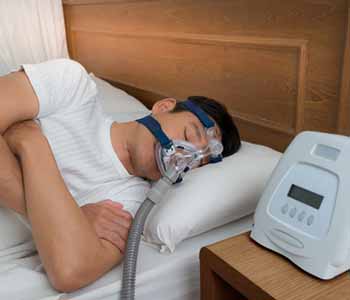
Patients are more likely to comply with the use of an oral appliance because they are:
A dentist trained in treating sleep disorders can help you understand the different appliances available and advise you on the one that may work best for you. It is also imperative that you follow up with your dentist after you begin using an appliance to make sure it is adjusted appropriately to provide maximum benefit.
If you suspect that you have sleep apnea, or if you’ve given up on your CPAP machine, call Dr. Siegel today at 773-772-8400 to discuss evaluation of your condition and possible treatment with an oral appliance. You’ll rest easier.

